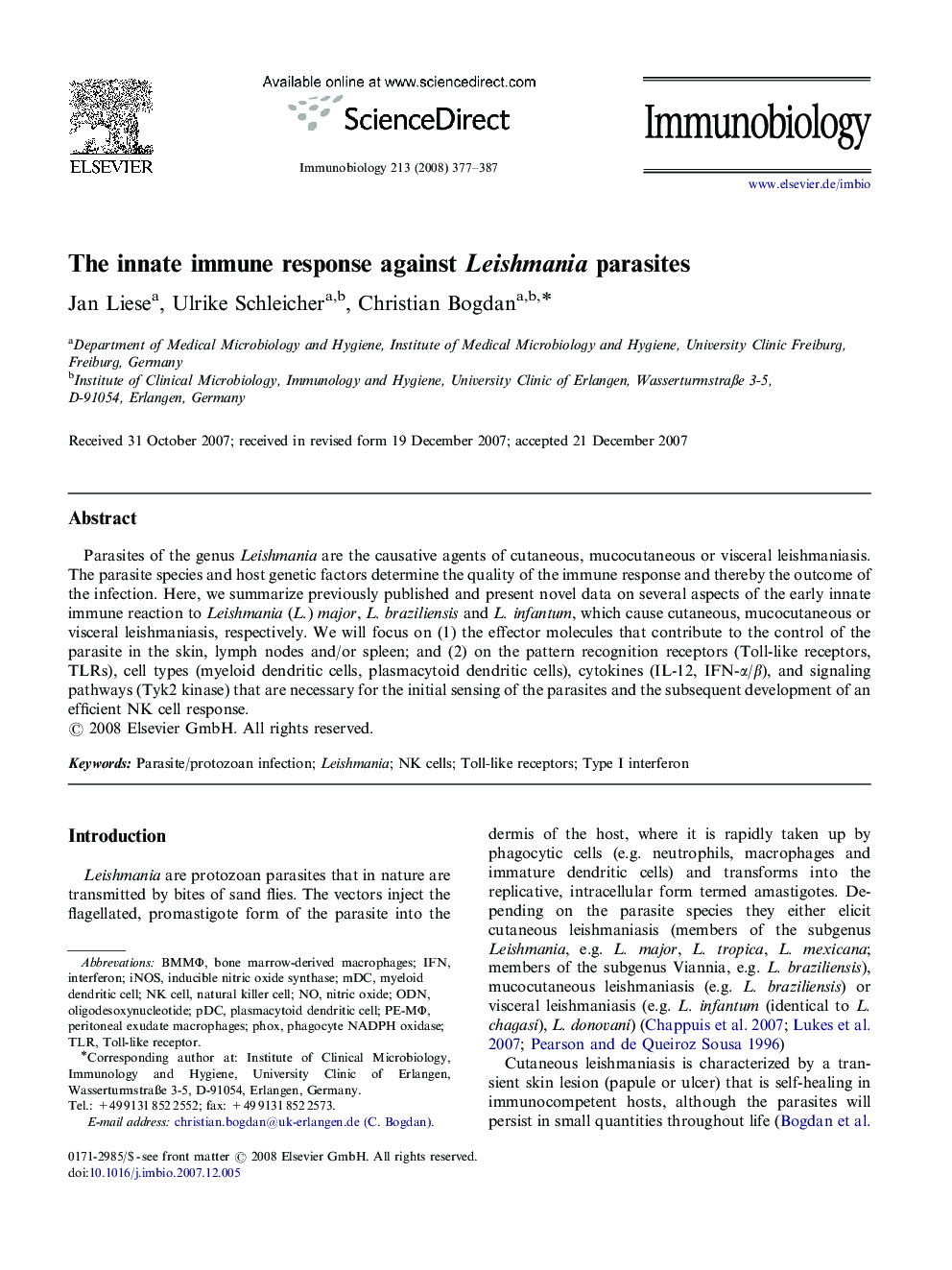| Article ID | Journal | Published Year | Pages | File Type |
|---|---|---|---|---|
| 2183856 | Immunobiology | 2008 | 11 Pages |
Parasites of the genus Leishmania are the causative agents of cutaneous, mucocutaneous or visceral leishmaniasis. The parasite species and host genetic factors determine the quality of the immune response and thereby the outcome of the infection. Here, we summarize previously published and present novel data on several aspects of the early innate immune reaction to Leishmania (L.) major, L. braziliensis and L. infantum, which cause cutaneous, mucocutaneous or visceral leishmaniasis, respectively. We will focus on (1) the effector molecules that contribute to the control of the parasite in the skin, lymph nodes and/or spleen; and (2) on the pattern recognition receptors (Toll-like receptors, TLRs), cell types (myeloid dendritic cells, plasmacytoid dendritic cells), cytokines (IL-12, IFN-α/β), and signaling pathways (Tyk2 kinase) that are necessary for the initial sensing of the parasites and the subsequent development of an efficient NK cell response.
